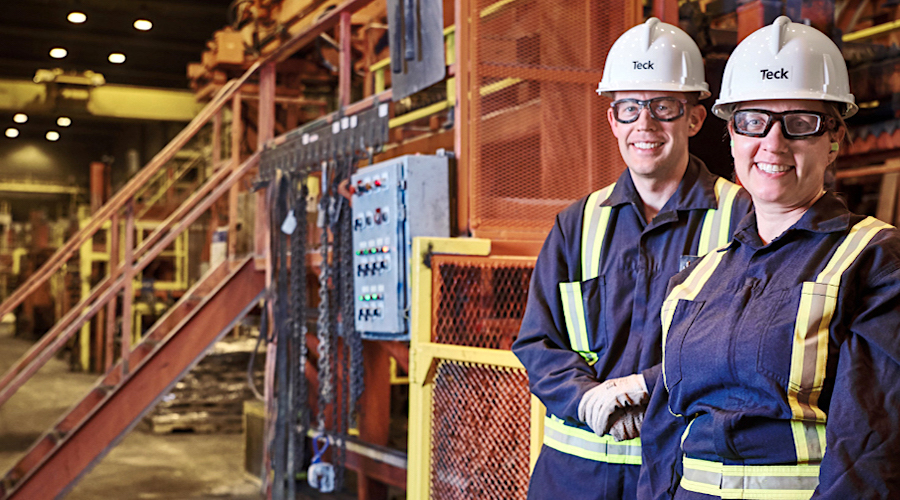
The complex, located in the community of Trail, produces refined zinc and lead, a variety of precious and specialty metals, chemicals and fertilizer products.
The company now expects refined annual zinc production to be in the range of 285,000 tonnes to 290,000 tonnes, down from a previous estimate of 290,000 tonnes to 300,000 tonnes.
Teck now expects refined annual zinc production to be in the range of 285,000 tonnes to 290,000 tonnes, down from a previous estimate of 290,000 tonnes to 300,000 tonnes.
Further headwinds are likely to weigh on third-quarter production, Teck noted, which will leave it with figures either on the lower end of its previous guidance or recast lower altogether.
Teck also cut its third-quarter sales outlook for contained zinc from its Red Dog operations in northwest Alaska to 145,000 tonnes to 155,000 tonnes, down from 180,000 tonnes to 200,000 tonnes expected previously.
The company, which has been working with the Toronto office of Barclays Investment Bank on a possible sale or spinoff of its coal division, said that unprecedented high steelmaking coal prices have altered its plans.
“We have made decisions to maintain available production for sale by operating higher cost equipment and relying on overtime to offset the increased absenteeism, which has also contributed to higher unit costs,” it said.
On the chopping block
According to mining industry sources, Teck chief executive Don Lindsay had held talks in the past year with big players, including Glencore and Lundin Mining, but negotiations didn’t lead to any deal.
Teck produced more than 21 million metric tonnes of steelmaking coal last year from four locations in western Canada. The business accounted for 35% of the company’s gross profit before depreciation and amortization in 2020, according to its website.
Teck has talked openly in the past about possibly spinning off or selling its coal assets to focus on increasing its exposure to copper.
The company has talked openly in the past about possibly spinning off or selling its coal assets to focus on increasing its exposure to copper, one of the key metals need to spur an energy transition.
Major miners across the globe, including BHP, Rio Tinto and Anglo American have been shedding their coal assets, particularly of the thermal kind.
The trend has reached banks, with several international lenders bowing to pressure from shareholders and lobby groups to avoid coal investments.
Australian banks have recently made headlines as Macquarie Group, Australia and New Zealand Banking Group (ANZ Bank), Commonwealth Bank of Australia and Westpac recently signaling their intention to stop coal financing.
Last week, South Africa’s First Rand jumped on the coal exit train, announcing the end of loans for new coal-fired power stations and coal mines in 2026.




